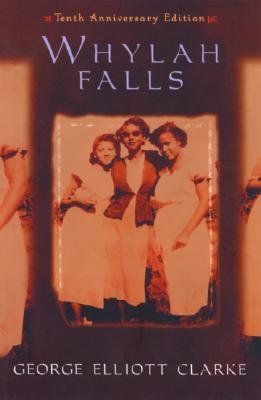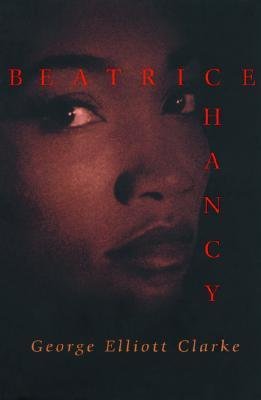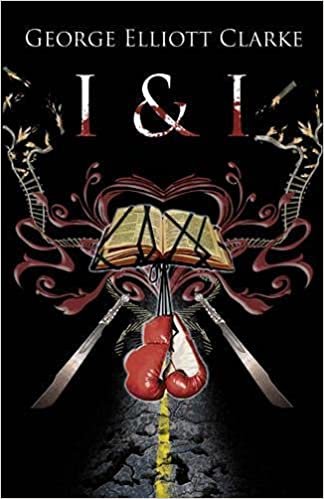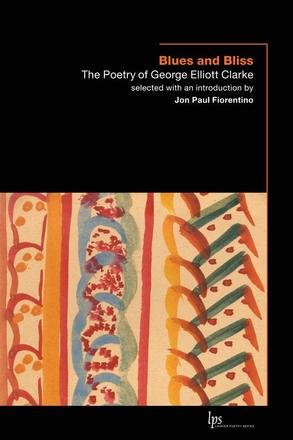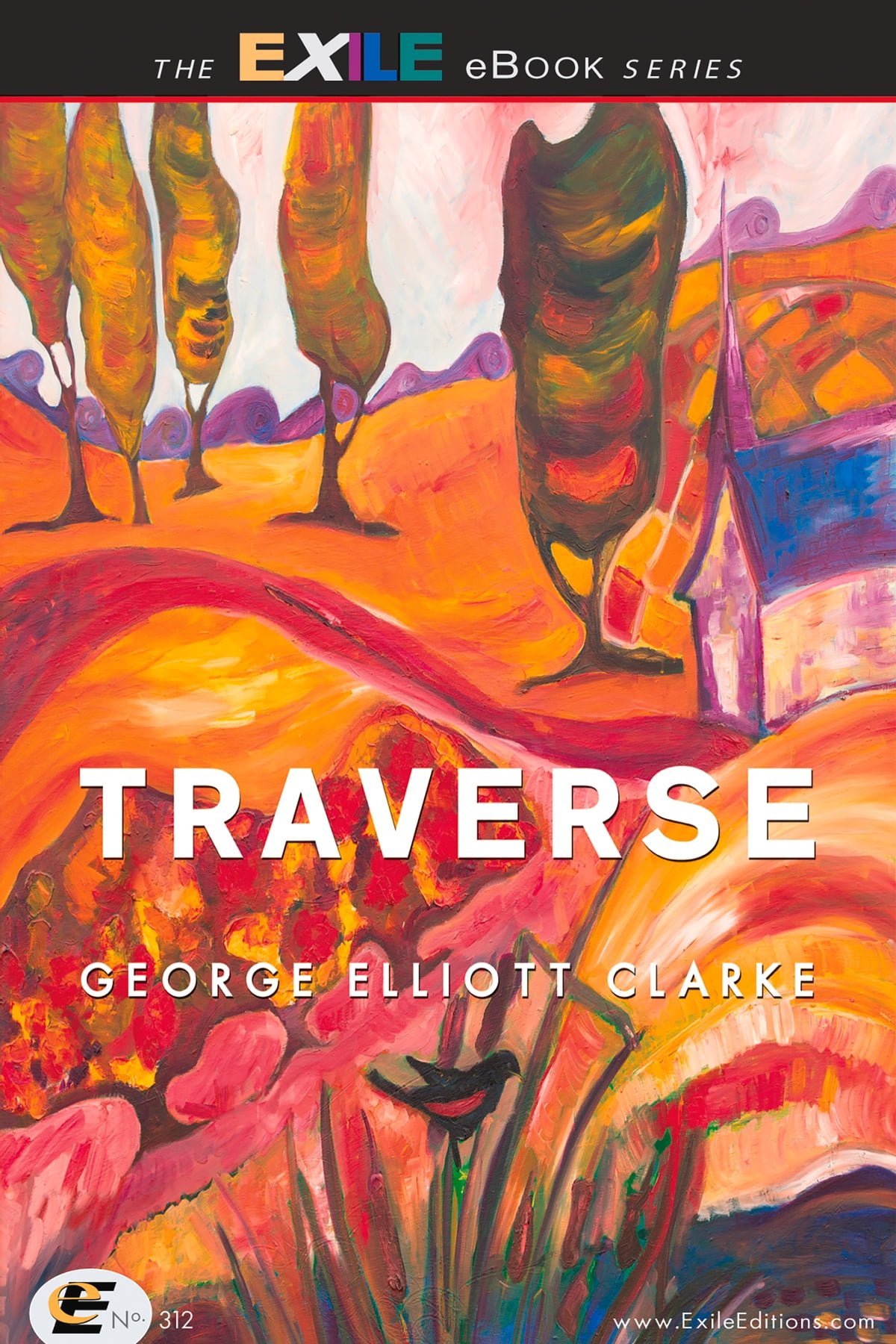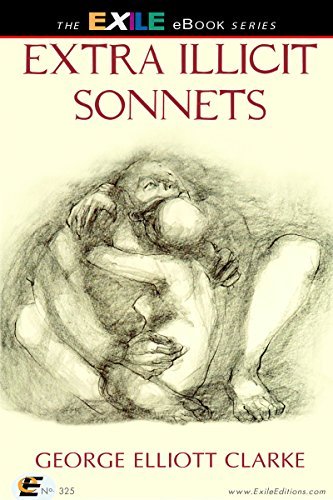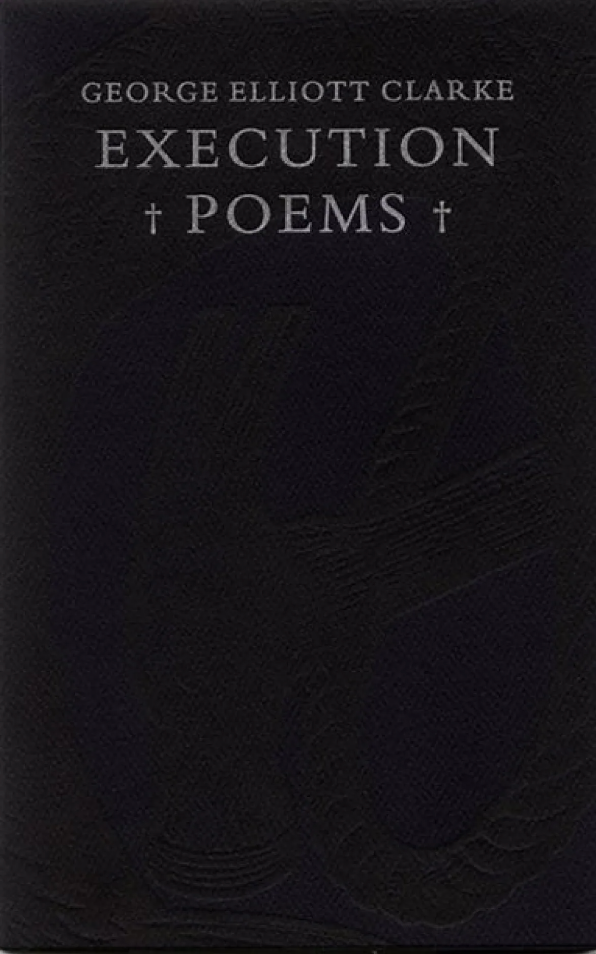George Elliot Clarke
Author photo of George Elliot Clarke, posing in front of a blurred background of a house or residential building. Clarke is wearing a black shirt. He is smiling, leaning slightly to the camera’s left.
Biography
The 4th Poet Laureate of Toronto (2012-15) and the 7th Parliamentary/Canadian Poet Laureate (2016-17), George Elliott Clarke was born in Windsor, Nova Scotia, in 1960. A professor of English at the University of Toronto, Clarke has also taught at Duke, McGill, UBC, and Harvard. His recognitions include the Rockefeller Foundation Bellagio Centre Fellowship (US), the Pierre Elliott Trudeau Fellows Prize, the Governor-General’s Award for Poetry, the National Magazine Gold Award for Poetry, the Premiul Poesis (Romania), the Eric Hoffer Book Award for Poetry (US), and International Fellow Poet of the Year [2019] (China). His acclaimed titles include Whylah Falls (1990, translated into Chinese), Beatrice Chancy (1999, translated into Italian), Execution Poems (2001), Blues and Bliss (selected poems, 2009), I & I (2008), Illicit Sonnets (U.K., 2013), and Traverse (2015).
Poetics Statement
“I came to poetry as an Africadian (African-Nova Scotian) kid trying to write songs. In fact, it was July 1, 1975, when I decided to write four songs per day (which became four poems per day a year later when I realized that the best songwriters are poets). So, there’s a lot of musicality in my verses, even now. To try to improve as a poet, I took my three university degrees in English; thus, I imbibed the major canons—American, British, Canuck. However, while my university English Departments had me reading acres of Caucasian poets, the poets who appealed most viscerally to me were African-American: Jean Toomer, Gwendolyn Brooks, LeRoi Jones (Amiri Baraka), Robert Hayden, Sonia Sanchez, Nikki Giovanni, Melvin B. Tolson, Sterling Brown, et cetera. I loved their earthy content and protest context, their giddy use of their own English and slang and jive, their funky incorporation of musical motifs—especially jazz and blues. So, as I matured as a poet, I thought I should blend John Milton and blues singer Little Milton, Ezra Pound and John Coltrane, Margaret Atwood and Malcolm X. I thought I should make William Butler Yeats holler like James Brown, make Gwendolyn MacEwen moan like Billie Holiday. I discovered that blank verse can be “blackened,” that rhymes can rap. Although I appreciate the Modernist emphasis on academic attainment (which has been a top-heavy influence on Canadian verse), my loyalty is to the singer-songwriter tradition of Leonard Cohen, Bob Dylan, and the African-American blues-smiths. Thus, I value rhyme, rhythm, alliteration, formal structures, and memorization and recitation (the voice). My subject is often History—of European imperialism and African enslavement, but I see myself as a cosmopolitan bard, interested in all peoples and all types of poetry, “free” and “not.””
Sample of Poet's Work
Look Homeward, Exile
I can still see that soil crimsoned by butchered
Hog and imbrued with rye, lye, and homely
Spirituals everybody must know,
Still dream of folks who broke or cracked like shale:
Pushkin, who twisted his hands in boxing,
Marrocco, who ran girls like dogs and got stabbed,
Lavinia, her teeth decayed to black stumps,
Her lovemaking still in demand, spitting
Black phlegm, her pension after twenty towns,
And Toof, suckled on anger that no Baptist
Church could contain, who let wrinkled Eely
Seed her moist womb when she was just thirteen.
And the tyrant sun that reared from barbed-wire
Spewed flame that charred the idiot crops
To Depression, and hurt my granddaddy
To bottle after bottle of sweet death,
His dreams beaten to one tremendous pulp,
Until his heart seized, choked; his love gave out.
But Beauty survived, secreted
In freight trains snorting in their pens, in babes
Whose faces were coal-black mirrors, in strange
Strummers who plucked Ghanaian banjos, hummed
Blind blues—precise, rich needlepoint,
In sermons scorched with sulphur and brimstone,
And in my love’s dark, Orient skin that smelled
Like orange peels and tasted like rum, good God!
I remember my Creator in the old ways:
I sit I taverns and stare at my fists;
I knead earth into bread, spell water into wine.
Still, nothing warms my wintry exile—neither
Prayers nor fine love, neither votes nor hard drink:
For nothing heals those saints felled in green beds,
Whose loves are smashed by just one word or glance
Or pain—a screw jammed in thick, straining wood.
[from Whylah Falls (1990)]
I.v.
October, Gothic October: No lovers loiter, lounge,
in Annapolis Royal’s “Historic Gardens.”
Naturally: Love poems wither in our bleak, stony,
frigid, hostile, brutal Canuck anthologies.
Maybe all hardy Canadian poetry erupts lavishly
from some solitary, sullen naturalist’s notebook.
See! A last bee, still stockpiling pollen, hums hotly
against this Octobral creep of cold. Octopoid
networks and wires of downed branches and briars
and twigs, prickling and muddling and needling, obscure
a scrappy bit of light, famished, gorging on a slice
of brown-black, brackish, leaf-plastered,
subsidiary pond, wafting orange-green-brown lily pads
and a certain tangy tart stink—
maybe of algae and oak leaves, decaying,
and the bizz of wispy, final, waifish insects.
Everything here is allegory for allegations.
Look! The dyked marsh is sucking, slurping, the Fundy—
the tall, hay-like grass, hay-smelling, springs
out of rank, black mud, crabby, with fronds and fringes of muck,
then sodden, mud-corralled water giving back
a sky of grey-and-white-peppered clouds, blue shards also,
conjoining dark, evergreen spikes,
grey, ghostly, scrawny things, or gold or gold-orange sprays
and tufts the colour of a blonde fillette.
Nearby accumulates a pungent cascade of leaves,
then the thick, gigantic stalks of marsh grass,
with sunlight baying in—nostalgic, regretful, imploring—
like a speaker in a John Thompson ghazal,
and the last, maniacal mosquitoes, whining, comme des pleutres,
and strafing still-fragrant, still-bloody roses,
near where the train tracks are Kaput, all torn-up now,
these roses glistening and perfuming dogmatically
while the eye hooks on notorious, flagrant, orange-red trees
and bowers of vines, other overhanging things,
darkening, just as the sun darkens while first launching light
against the dykes, the marsh, in dying brilliance
equivalent to what Carman paints in “Low Tide at Grand Pré.”
Dismissive of our idiot anxieties and ironies,
stately lances the august, sepulchral, elegiac light.
[from Blues and Bliss (2008)]
Haligonian Market Cry
I got hallelujah watermelons—virginal pears!—virtuous corn!
Munic haec et altera vincit!
Luscious, fat-ass watermelons—plump pears!—big-butt corn!
Le gusta esta jardin?
Come-and-get-it cucumbers!—hot-to-trot, lust-fresh cucumbers!
Voulez-vous coucher avec moi?
Watermelons!—Go-to-church-and-get-redeemed watermelons!
Un bacio … un bacio ancora!
Good God cucumbers!—righteous pears!—golden Baptist corn!
Lieben wir alle nicht die Sinneslust!
I got sluttish watermelons!—sinful cucumbers—jail-bait pears!—
Planted by big-mouth Chaucer and picked by Sugar Shakespeare!
[from Execution Poems (2001)]


